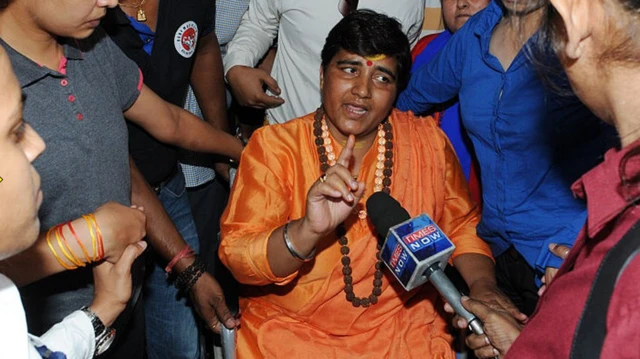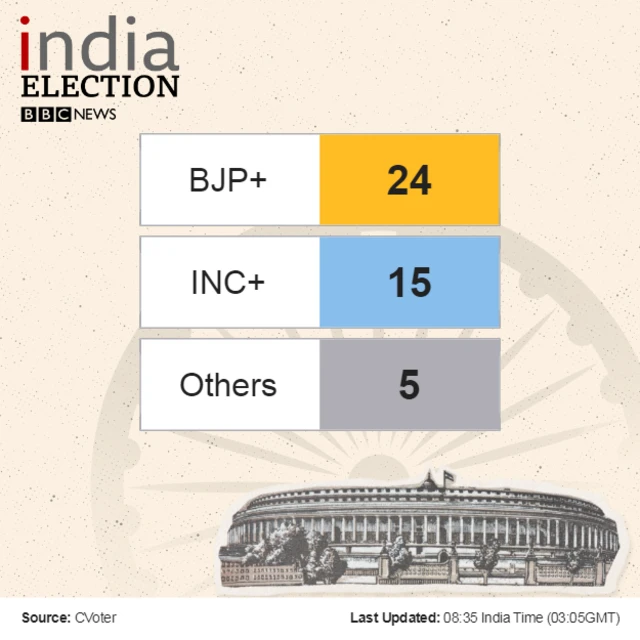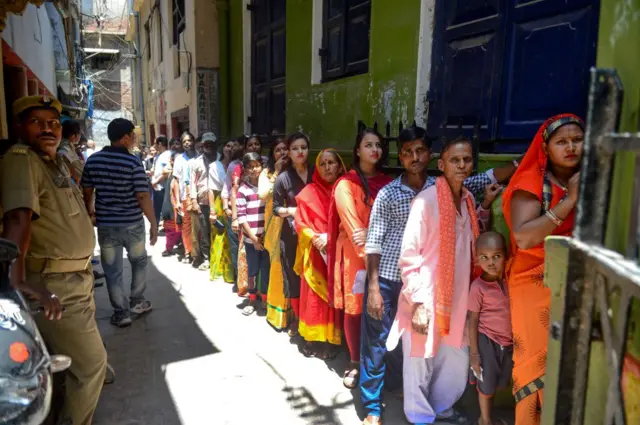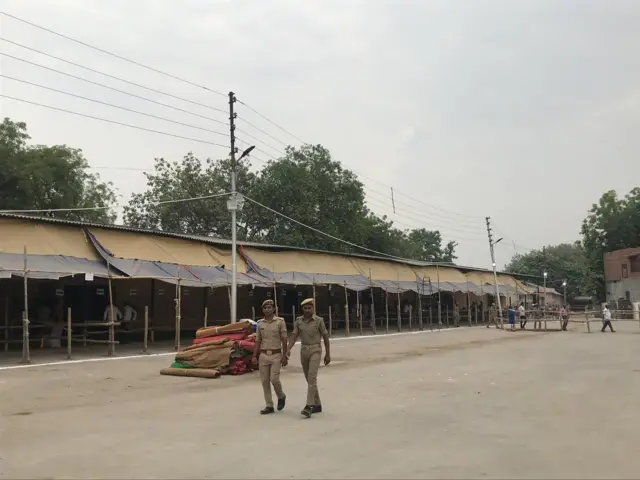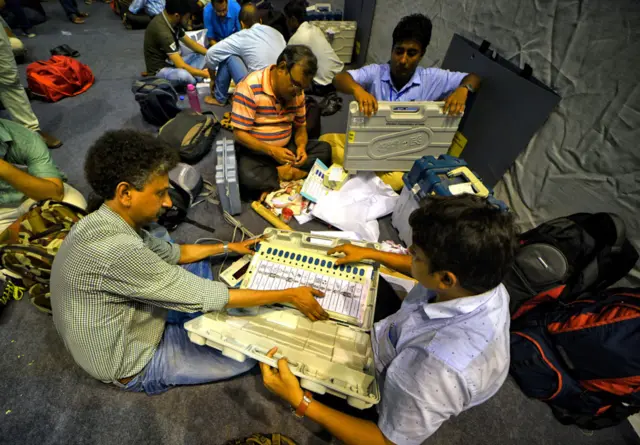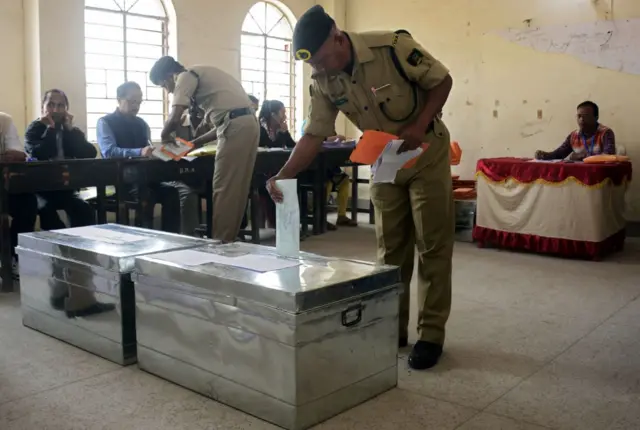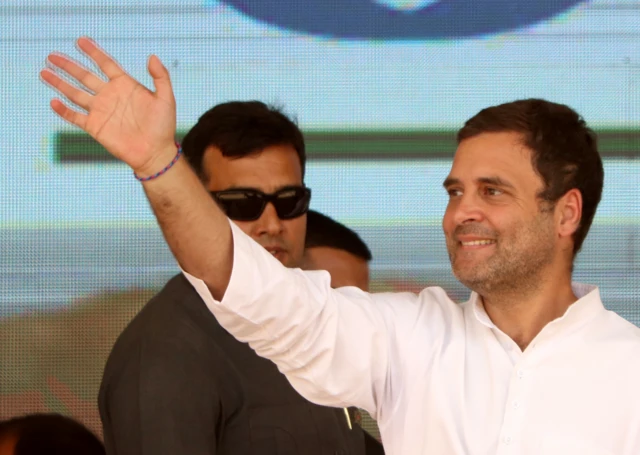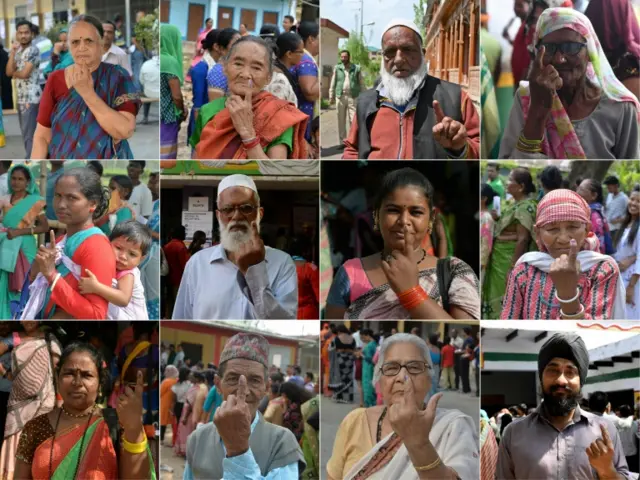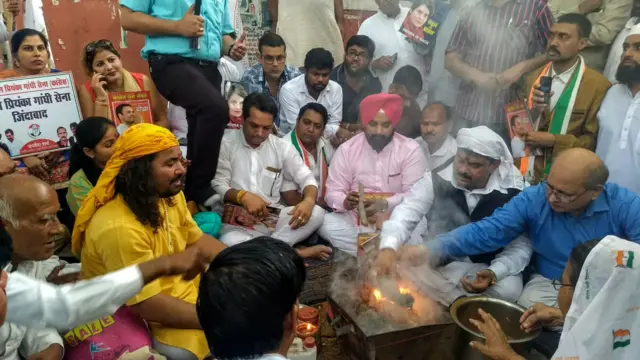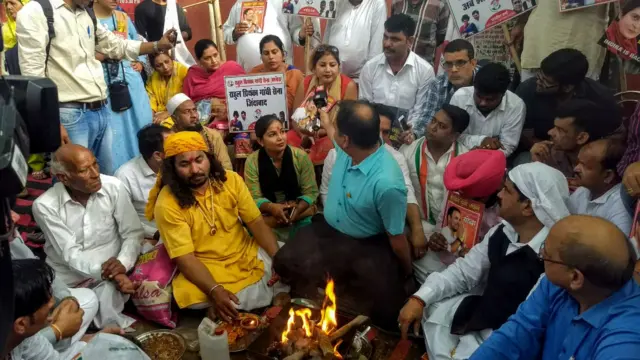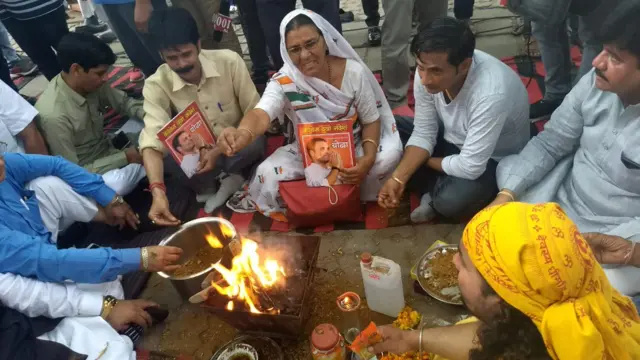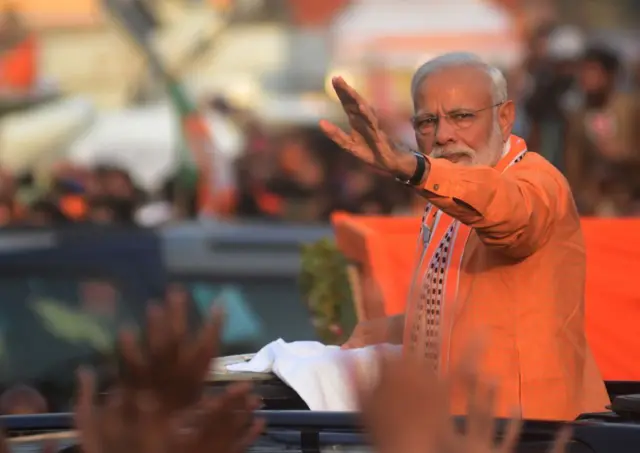Heavy security at a counting centre in bellwether statepublished at 04:30 BST 23 May 2019
There is a massive security presence at a counting centre in Lucknow - a city in the northern state of Uttar Pradesh, which elects the maximum number of 80 MPs to the Indian parliament.
Early trends in the state so far show that Rajnath Singh, India's home minister, is leading there.
Allow X content?
This article contains content provided by X. We ask for your permission before anything is loaded, as they may be using cookies and other technologies. You may want to read X’s cookie policy, external and privacy policy, external before accepting. To view this content choose ‘accept and continue’.
